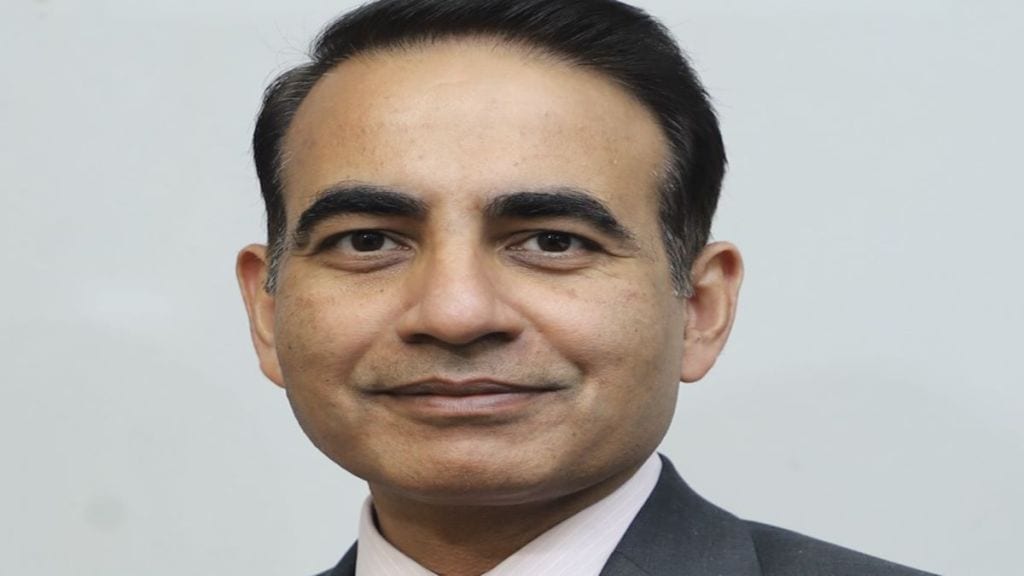India is emerging as a favourable destination to conduct clinical trials, as per a joint report by PwC India & USAIC (US-India Chamber of Commerce). According to the report, total number of investigators has increased by 2x between 2015 and 2020, with the majority of the increase occurring in the internal medicine and oncology specialisations.
The report also pointed out that the growth in the number of investigators is largely restricted to tier-1 and 2 cities. Industry experts emphasised that it takes about 6-10 years for any new drug to get introduced in the market. Reportedly, 25 percent of time is just dedicated towards preparing of documents which needs to be submitted to FDA/ health authorities. Clinical trials hold enormous potential for benefiting patients, improving therapeutic regimens and ensuring advancement in medical practice that is evidence based.
In order to improve the outcomes, companies like Tata Consultancy Services (TCS) are working towards accelerating clinical drug trials through digital transformation.
The company has been helping the Pharma and Healthcare industry to reduce this time invested in creating the documents for submissions which will enable faster introduction of new drugs to the market.
Financial Express.com reached out to Vikas Jain, Global Head, Life Sciences and Healthcare, Enterprise Growth Group, TCS via e-mail and he highlighted TCS’ role in the healthcare and pharmaceutical industry, its collaborations, its innovations and initiatives, and upcoming plans among others. Excerpts:
What has been the role of TCS in India’s healthcare and pharmaceutical industry?
For healthcare and pharmaceutical firms today, the patient is at the front and center of all key decisions. They are no longer limited to producing drugs and devices. The focus has decidedly shifted to patient-centric solutions that provide the right medical intervention at the right time. We partner with organizations to bring together purpose-led solutions to help patients live longer, happier, and healthier lives.
Improving the public health infrastructure has been one of the most significant focus areas for India. The entire vaccination manufacturing and administration, creation of COWIN platform is testimony to enhanced spending on the public health infrastructure in India. TCS has always been on the forefront of various Digital Public Infrastructure (DPI) initiatives in several sectors and healthcare is no exception. One such project which we are particularly proud of is the Ayushman Bharat Pradhan Mantri Jan Arogya Yojana (PMJAY) scheme, where TCS has been involved right from conceptualisation to implementation of one of the largest and most complex public health programs in the healthcare sector in India. This implementation was done in a record time from the date the scheme was announced in the budget speech in 2018. The project is now focusing on newer technologies like the Health Claims Exchange (HCX), adopting the global health standards such as Electronic Medical Records (EMR), International Classification of Diseases (ICD 10), and Fast Healthcare Interoperability Resources (FHIRV4), which will take the Digital Healthcare in India many strides ahead.
Additionally, we have also collaborated with the Tata Medical Center (TMC) to set up the Tata Translational Cancer Research Centre (TTCRC), Kolkata with the vision to transform cancer care and develop capabilities for personalized therapies and clinical decisions. What TTCRC does is utilize a collaborative approach to develop strategies in delivering cost-effective solutions to cancer patients in India. We have collaborated with the University of California Berkeley for Genomics Research for rare diseases and new-born screening. We have also worked on metagenomics research projects such as gut microbiome health using stool samples, in addition to preterm birth defects detection using vaginal microbiome samples in collaboration with Lady Harding Medical College (LHMC), New Delhi.
Clinical Services is core to any drug research and development process. TCS was one of the first companies in India to offer Clinical Services cutting across areas such as Clinical Data Management, BioStats programming and analysis, Pharmacovigilance and Regulatory Services.
What are the challenges that the healthcare and pharma sector of the country is facing? How are these challenges an opportunity for TCS?
India’s healthcare and pharma sectors are growing rapidly. While the healthcare market has recorded a three-fold rise in the last decade, the pharma industry has grown 10 times in the last two decades.
There are some key challenges that the Indian market is facing today. This includes inadequate infrastructure, shortage of skilled manpower, unequal access to healthcare, affordability constraints, quality control and compliance, manufacturing infrastructure, among other things.
While the Indian healthcare industry has the basic digital infrastructure to manage operations in urban towns, reaching the grassroot level and leveraging technology poses a challenge.
These hurdles provide substantial opportunities for TCS to leverage its expertise and domain knowledge in IT services and digital transformation areas. Through it we can enable increased access to care, improved quality of care delivery, and reduction of medical errors. This can be achieved by building an ecosystem of integrated healthcare solutions such as telehealth and other suite of digital health solutions.
We enable smart automation using AI, ML, robotics, and other technologies to interpret health parameters and develop treatment plans, streamline supply chain and manufacturing processes, all while optimizing costs. With data and digital at the core, we can help build patient centric solutions and services.
What does India currently stand with respect to clinical research and development? What has been TCS’ role in this area?
TCS has a strong workforce of clinical research professionals based out of India. They are all geared towards catering to the drug development needs of global biopharma companies. What TCS does is bring transformative solutions and models to our customers to help them keep the “Patient at the center.”
TCS is also actively contributing to create an industry talent pool for clinical trials in India through its Academia Industry Interface Programs (AIIP) using its expertise in clinical trials. TCS has partnered with several academic institutions in the pharmaceutical domain to upskill their staff and build clinical trial centered courses and training programs.
Additionally, TCS provides business process services as well as technology solutions to global clinical trials to Indian and global pharma companies. It is what uniquely positions it to provide holistic solutions for the clinical trial requirements in India.
We are also looking at providing the Indian market with more cost-effective holistic BPaaS solutions. To serve our consumers in India and around the world, we have opened new delivery centers in tier 2 cities spread across several states. The Indian regulator is expecting more stringent coverage in line with global trials, which means organizations like ours can bring in their expertise from global experience.
What are the challenges that the clinical research industry is facing? What needs to be done to improve this status?
One of the challenges that the clinical research industry is facing today is talent retention. In order to attract and retain talent, apart from compensation, it is equally essential to invest in resources. This includes providing an ecosystem of continuous learning and development, in line with growing industry guidelines, regulations, systems, and technologies. Due to the pandemic, there has been an acceptance of remote trials, home-based administration of drugs, and the use of wearables and connected devices for continuous remote monitoring and the use of telemedicine.
Despite recent changes in the regulatory landscape of clinical research, it is subject to frequent updates. Maintaining compliance with evolving regulations and ensuring adherence to guidelines can pose a challenge for both domestic and multinational companies in India. Increasing the deployment and penetration of digital technologies across the sector for documentation and submissions can help enhance overall data integrity, transparency, and security in this domain.
To increase data transparency in clinical trials and avoid duplication of studies with negative outcomes, the Clinical Trials Registry of India (CTRI) could be augmented with additional capabilities to post the clinical trial results for trials conducted in India. This will help foster greater knowledge sharing in the industry and enhance trust. The publishing of trial results would enhance the health literacy of patients and reinforce trust in the pharma industry. This in turn could enable greater participation in future trials and at the same time encourage participants to make more informed choices about participation in trials.
Could you please highlight some of the new innovations TCS is launching?
Some of the initiatives in TCS Research and Innovation include digital bio twins that help reduce pre-clinical trials. The digital twin is also being used as an in-silico model which helps reduce or avoid animal and human testing. It also enables continuous bio-pharma manufacturing and the use of 5G in pharma manufacturing. New technological developments to enable remote clinical trials including AR and VR-based modalities and blockchain to facilitate confidentiality.
TCS digital solutions help identify the best-suited clinical trials for a specific disease, along with digitizing e-consent, and Electronic Patient Reported Outcome (ePRO). This helps in efficient patient onboarding and offers support to reach patients in needy demographic areas by providing access to their homes or local clinics.
The use of Natural Language Processing (NLP), Knowledge Graph, and Natural Language Generation (NLG) will accelerate documentation processes in clinical trials.
TCS has a proprietary method which uses Generative AI (GAI) for drug discovery to expand the horizon of possible drug candidates with optimized properties. Our solution can also find drug candidates for newly identified protein targets for which no molecules have been previously identified. In the coming years, we will be focusing on creating autonomous ecosystems that GAI can help orchestrate. This will involve choosing the right GAI model for the given ask, tech resilience (safety, security, reliability, and trust), performance management (prompt engineering, fine tuning, accuracy, compute power needs), integration with other enterprise systems and change management for adoption.
The interactions of healthcare providers as well as the trial team with volunteers can be facilitated remotely and in an immersive environment using AR/VR. Also new technologies such as blockchain can be used at multiple stages of the remote clinical trial to maintain transparency which improves adherence to the trial.
Could you please share a broader picture of how the industry will shape up if we reduce the time of documentation which will in turn help the new drug introduction in the market in time?
It is important to accelerate clinical trials to enable faster access to new drugs for better patient outcomes. Almost 25% of the drug development cycle is spent on the development of different types of scientific or operational documents for submission to FDA. It takes specialized medical writers to support the clinical development of any new drug. The manual document writing process is cumbersome and prone to human errors.
The adoption of data standards, automation and the use of NLP will reduce the time spent in creating these documents. TCS is developing an AI-based one stop medical writing solution for fast, intelligent content authoring, and to accelerate the regulatory submissions for new medicinal products.
This solution has been initiated for cancer therapy drugs, but plans are to gradually expand it to other disease areas like ophthalmology, infections, and metabolic disorders among others.
The most important aspect of the solution is that it has reduced the cycle time to create a new document by 20%, and with further enhancement of the solution, the expectation is that the overall time will reduce up to 40% and help achieve quicker regulatory submission. This will lead to quick access of life-saving drugs to patients who currently have to wait for long.
What are some of the TCS’ solution initiatives for cancer therapy drugs? Are there any plans to implement these solutions in other disease areas?
Today, precision medicine is of utmost importance in cancer therapy as patients’ responses vary for different drugs. TCS is using multi-omics and medical imaging analytics that leverage AI and ML to facilitate the development of companion and digital diagnostics as well as understand the mechanistic basis for the differential response of patients.
Cutting-edge digital technologies such as generative AI and advanced analytics can help develop more effective and less invasive cancer therapies. We are developing a Clinical Decision Support tool to support cancer healthcare practitioners with periodic dose modifications, remote monitoring, and optimizing treatment modalities.
By collaborating with academic and research institutions and leveraging our expertise in cancer biology, drug development, and patient care, we can improve health outcomes. TCS has also supported Tata Medical Center to set up Tata Translational Cancer Research Center which can help in doing translational research and improve health outcomes for cancer patients in India.
Initiatives of TCS and our co-innovation partners are targeted towards finding an optimal combination of drugs for different individuals with different types of cancer. TCS is also working on organoids to facilitate in vitro assessment of treatment candidates. In addition, we are working towards developing novel treatment regimens and investing in developing methods for non-invasive risk assessment for cancers using molecular, genomic, or microbiome-based markers.
TCS also facilitates the complete digital monitoring of supply chains (also cold supply chains) as well as simulates different what-if scenarios. This is important for drugs with a lower shelf life as delays might lead to the wastage of these very rare and expensive drugs.
All these ideas can be extended to other diseases where there are many white spaces.
What is the role of data analytics and big data in the life sciences and healthcare industry?
Data is at the heart of business transformation. Our solutions provide insights that help develop new products and services, elevate customer experience, and enhance business outcomes. Our pharma and healthcare customers rely on data and analytics to make data driven decisions in research and development, autonomous and adaptive manufacturing. This is in addition to an intelligent and resilient supply chain, improved healthcare provider and patient engagement, empowered salesforce, and effective market access.
Data and analytics trends in healthcare:
A shift towards value-based care, with a greater focus on customer experience, interoperability mandates, and data privacy concerns are the primary drivers for the adoption of data and analytics services by healthcare enterprises.
Providers are looking at improved clinical outcomes, shifting to a value-based care model and enhanced operational efficiency. Healthcare payers are focusing on enhancing member engagement, customer satisfaction, better health insights, and clinical outcomes.
As our life sciences and healthcare clients move towards their stated goals, there is a renewed focus in tech modernization towards cutting-edge data, actionable insights, and digital-first experience.
TCS follows a holistic approach to data centricity that covers the entire data value chain to drive business effectiveness. This includes simplifying the data and analytics landscape, bringing in synergy across the knowns and the unknowns in the business ecosystem, and enabling the deployment of solutions at scale. Further, its rich set of enablers that include both horizontal AI/ML accelerators and industry-specific models help organizations drive their technology landscape modernization and tap into the potential of real-time decision-making.
TCS’ end-to-end data and analytics empower clients to capitalize on their potential. TCS leverages a combination of services and platforms to support clients’ data and decision transformations. We are working with leading companies to navigate the next normal using a new generation of advanced analytics-based solutions. We are also empowering our clients to develop new products and services and convert their data to valuable tools for superior customer experiences.
What are your upcoming plans and market expectations?
We believe technology will have a critical role to play in innovating new medical products as well as in simplifying and broadening access to healthcare. Towards this, we are investing in automation and AI based solutions that span across the pharma value chain. Our solutions help reduce cycle time for drug development, make manufacturing paperless as well as enhance engagement with HCPs and patients using digital channels. Markets will expect an increase in value based care and real world data will be at the core of this. TCS is investing in solutions and people to cater to the increasing demand of value based care. India has a diverse demography and geography and supply chain challenges here can be reduced through digitization and centralization. TCS is working very closely to digitalize the end-to-end supply chain.
Anything else that you would like to add?
Personalization across Life Sciences and Healthcare is poised to grow further. Whether it is related to the treatment of complex diseases or health insurance policies or patient experience at a clinic or hospital, patient services are going to get more and more personalized. This would require analysis of large volumes of data including molecular data and data of patients through their wearables. With its underlying strength in data and digital technologies and continuous investment in ready-to-deploy solutions, TCS can help Life Sciences and Healthcare companies ace patient personalization.









